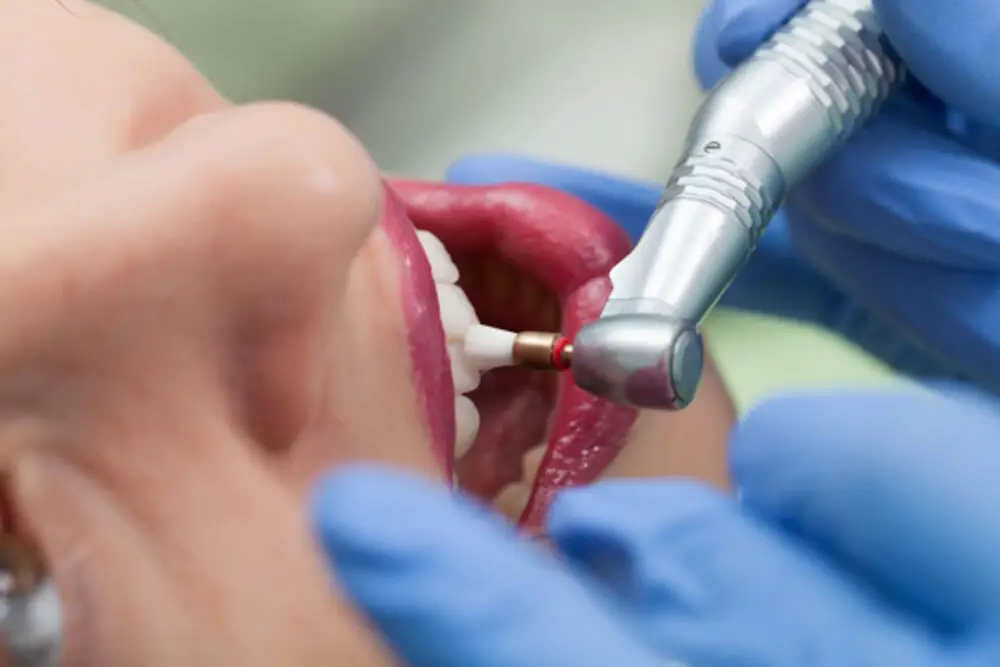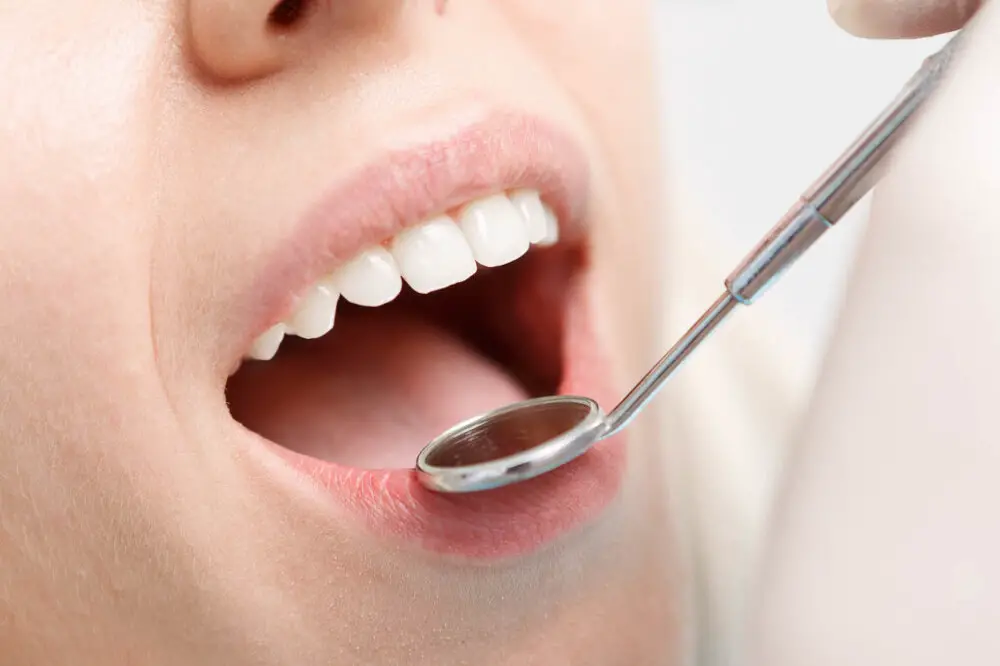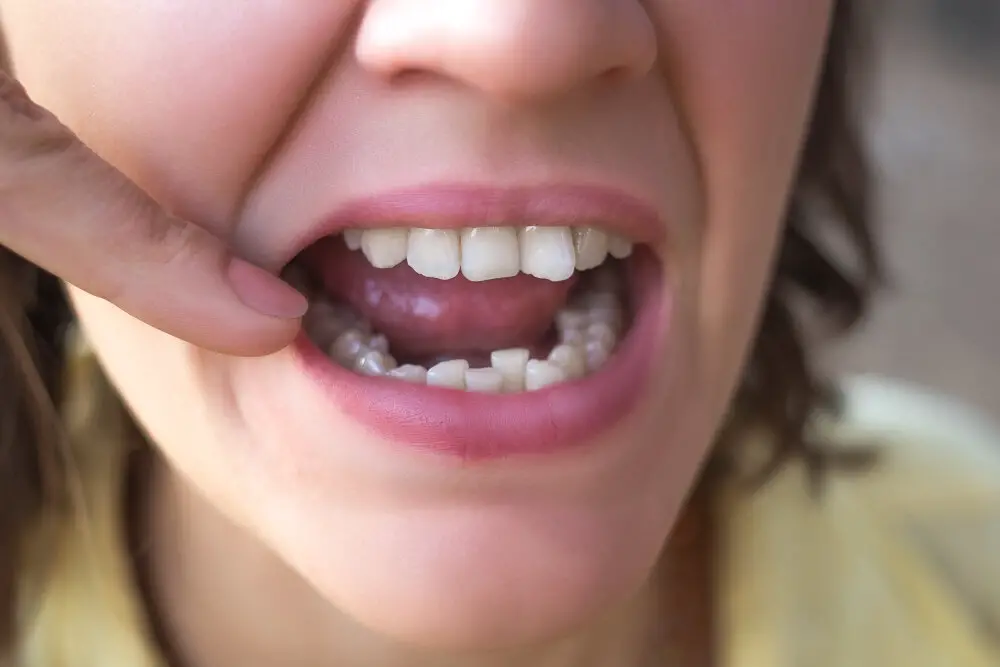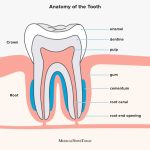Why Teeth Are Sensitive: Understanding the Function of Dental Nerves

Sensitive teeth are a common problem that many people face. It is a condition where the individual experiences discomfort or pain while consuming hot, cold, sweet or acidic foods and drinks. This sensitivity is caused by the exposure of the underlying dental nerves in the teeth. The dental nerves are an essential part of the dental anatomy, and their function is critical to the overall health of the teeth. Understanding the role of dental nerves in tooth sensitivity is crucial for effective management and treatment of this condition. Dental nerves are responsible for transmitting sensory information, such as pain, temperature, and pressure, to the brain. These nerves are located in the pulp of the tooth, which is the soft inner layer that contains blood vessels and nerves. When the enamel, which is the outer layer of the tooth, is worn down or eroded, the underlying dentin becomes exposed. The dentin contains microscopic tubules that lead to the dental nerves in the pulp. When the dentin is exposed, the tubules allow for the easy transmission of external stimuli, causing sensitivity and pain in the tooth.
Tooth sensitivity is a common dental problem that affects a large number of people worldwide. It is characterized by a sharp pain or discomfort in the teeth when exposed to certain stimuli such as cold or hot temperatures, sweet or sour foods, or even air pressure. The underlying cause of tooth sensitivity is the exposure of the dentin layer of the tooth, which contains tiny tubes that connect to the nerve endings in the pulp. When the dentin is exposed, these tubes become exposed to external stimuli, leading to pain and discomfort. Common causes of tooth sensitivity include tooth decay, gum recession, enamel erosion, and teeth grinding. Proper dental hygiene, including regular brushing and flossing, can help prevent tooth sensitivity, while treatment options such as desensitizing toothpaste, fluoride treatments, and dental procedures like bonding or root canal therapy can help alleviate the symptoms.
Understanding dental nerves is crucial in determining the cause of tooth sensitivity and developing effective treatment plans. Dental nerves are responsible for transmitting sensations such as pain, pressure, and temperature from the teeth to the brain. When these nerves are damaged or irritated, it can result in tooth sensitivity, severe pain, and other dental problems. By identifying which nerves are affected and determining the underlying cause, dentists can provide targeted treatments to alleviate discomfort and restore oral health. Additionally, a thorough understanding of dental nerves can help dentists prevent nerve damage during procedures such as root canals and extractions, ensuring the best possible outcomes for their patients. Ultimately, knowledge of dental nerves is essential for maintaining good oral health and providing effective dental care.
Anatomy of a Tooth

Understanding the anatomy of a tooth is essential in comprehending why teeth are sensitive. A tooth is composed of four layers: enamel, dentin, pulp, and cementum. Enamel is the outermost layer of a tooth, which is the hardest substance in the human body. It protects the tooth from decay and provides a smooth and shiny appearance. Underneath the enamel layer is dentin, which is softer and more sensitive than enamel. Dentin contains tubules that transmit sensations to the pulp layer, which is the innermost part of the tooth. The pulp layer houses nerves and blood vessels that nourish the tooth. Finally, cementum is a thin layer that covers the root of the tooth, anchoring it to the jawbone. The sensitivity of teeth arises from the exposure of dentin due to enamel erosion or gum recession. This exposes the tubules in the dentin layer, allowing hot, cold, sweet, or acidic substances to reach the pulp layer, which triggers the nerves and causes pain. Additionally, dental nerves can become inflamed or damaged due to trauma, infection, or decay, leading to sensitivity and pain. Understanding the anatomy of a tooth and its sensitivity can help individuals take preventive measures such as maintaining good oral hygiene, avoiding sugary and acidic foods, and visiting the dentist regularly for check-ups and treatment.
Teeth are complex structures that have different layers, each with a specific function. The outermost layer is the enamel, the hardest substance in the human body that protects the tooth from external factors. Beneath the enamel is the dentin, a softer layer that contains tiny tubules and nerves that connect to the dental pulp. The dental pulp is the innermost layer of the tooth, which contains blood vessels, nerves, and connective tissue. The pulp is responsible for nourishing the tooth and transmitting sensory information to the brain. When the enamel is damaged, the dentin and pulp become exposed, making the tooth vulnerable to sensitivity and pain. Understanding the layers of a tooth can help us appreciate the importance of maintaining good dental health and seeking prompt treatment for dental problems.
The location of dental nerves is a crucial aspect that determines the sensitivity of teeth. These nerves are present in the pulp, which is the soft tissue present in the center of each tooth. The pulp contains blood vessels, connective tissues, and dental nerves that are responsible for transmitting signals to the brain. When the tooth enamel gets eroded, the nerves become exposed to the external environment, leading to sensitivity. The dental nerves are also connected to the periodontal ligament, which is the tissue that connects the tooth to the jawbone. This connection allows for the transmission of signals when there is any pressure or movement in the tooth. The location of dental nerves is essential to understand the function of teeth and the reasons behind their sensitivity.
Function of Dental Nerves

The function of dental nerves is crucial in maintaining healthy teeth and gums. Dental nerves are responsible for transmitting sensations of pain, pressure, and temperature from the teeth and surrounding tissues to the brain. They also regulate blood flow and provide nutrients to the teeth, helping to keep them strong and healthy. Without dental nerves, we would not be able to feel when something is wrong with our teeth, and we would not be able to respond appropriately to prevent further damage. Dental nerves are also important in the process of chewing and speaking, as they help us to feel the texture and temperature of our food and control the movement of our tongue and jaw. However, dental nerves can also become sensitive or damaged, leading to discomfort and pain. This sensitivity can occur due to a variety of factors, including tooth decay, gum disease, grinding or clenching of the teeth, and even stress. When dental nerves become hypersensitive, they can cause a sharp, shooting pain in response to certain stimuli, such as cold or hot temperatures, sweet or sour foods, or pressure from chewing. This sensitivity can be managed through proper oral hygiene, regular dental check-ups, and avoiding certain foods or habits that can exacerbate symptoms. Understanding the function of dental nerves is essential in maintaining good oral health and preventing discomfort and pain.
The nerves play a crucial role in tooth sensation, as they are responsible for transmitting information about the external environment to the brain. Teeth have two types of nerves: sensory nerves and motor nerves. Sensory nerves are responsible for transmitting information about pain, temperature, and pressure, while motor nerves control the movement of the muscles used in biting and chewing. When the enamel on a tooth is worn away, the underlying dentin becomes exposed, causing sensitivity to hot and cold temperatures. This is because the sensory nerves in the tooth are directly exposed to the external environment, and any changes in temperature are immediately detected and transmitted to the brain. Understanding the function of dental nerves is essential for maintaining good oral health and avoiding tooth sensitivity.
When we experience tooth sensitivity, it is because the nerves in our teeth are sending signals to our brain. These signals are transmitted through the dental pulp, which is the soft tissue located inside the tooth. The dental pulp contains nerve fibers that are responsible for sensing and transmitting signals of pain, pressure, and temperature. These signals are then carried by the trigeminal nerve, which is the largest cranial nerve in the head, to the brain. Once the brain receives these signals, it interprets them as sensations of pain or discomfort, which is why we feel the sharp, shooting pain associated with tooth sensitivity. Understanding this transmission of signals to the brain can help us better understand why teeth are sensitive and how to prevent and treat sensitivity in the future.
Causes of Tooth Sensitivity

Tooth sensitivity is a common dental problem that causes discomfort or pain in the teeth when exposed to certain stimuli such as hot or cold foods and drinks, sweet or sour foods, or even cold air. There can be several causes of tooth sensitivity, including tooth decay, gum recession, enamel erosion, and grinding of teeth. Tooth decay is the most common cause of tooth sensitivity, as it can lead to the exposure of the sensitive part of the tooth, called the dentin. When the dentin is exposed, it can cause discomfort or pain in response to different stimuli. Gum recession is another cause of tooth sensitivity, as it can expose the roots of the teeth, which are not protected by enamel and can be sensitive to hot, cold, and sweet stimuli. Enamel erosion, which can result from acidic food and drinks, can also cause tooth sensitivity, as it can wear away the protective layer of the teeth and expose the dentin. Finally, grinding of teeth can also cause tooth sensitivity, as it can wear away the enamel and expose the dentin. Understanding the causes of tooth sensitivity can help individuals take preventive measures and seek appropriate treatment to alleviate the discomfort or pain associated with this condition.
Enamel erosion is a condition in which the protective outer layer of the teeth, known as enamel, gets worn down due to various factors such as acid erosion, tooth decay, and bad oral hygiene. This can lead to sensitivity, as the enamel protects the underlying dentin, which contains microscopic tubules that lead to the dental nerves. When the enamel is eroded, the dentin becomes exposed, and the nerves can be stimulated by hot, cold, sweet or acidic foods and drinks. Enamel erosion can also lead to discoloration, chipping, and cracking of the teeth, making them more susceptible to cavities and further damage. It is important to take care of your teeth and practice good oral hygiene to prevent enamel erosion and maintain healthy teeth and gums.
Gum recession is a common dental problem that occurs when the gum tissue wears away from the tooth’s root, exposing the sensitive nerves and causing tooth sensitivity. The condition can develop due to various reasons, including periodontal disease, aggressive brushing, genetics, and hormonal changes. Gum recession can lead to more severe dental problems, such as tooth decay, infection, and tooth loss, if left untreated. Your dentist may suggest various treatments to prevent further recession, including gum grafting, scaling and root planing, and regular dental cleanings. It’s essential to address gum recession promptly to avoid further damage and maintain healthy teeth and gums.
Tooth decay is a common dental problem caused by the buildup of plaque and bacteria on the surface of teeth. The decay process begins when acids produced by bacteria erode the enamel, which is the hard outer layer of the tooth. If left untreated, the decay can progress to the inner layers of the tooth, including the dentin and pulp, resulting in pain, sensitivity, and even infection. Factors that contribute to tooth decay include poor oral hygiene, a diet high in sugar and carbohydrates, and dry mouth. Prevention through regular brushing, flossing, and dental check-ups is key to maintaining good oral health and preventing tooth decay.
Grinding or clenching, also known as bruxism, is a common condition that affects many people. This is the involuntary and excessive grinding or clenching of the teeth, usually during sleep. It can cause a range of issues such as headaches, jaw pain, and tooth sensitivity. The pressure and force created by grinding or clenching can damage the dental nerves, causing them to become inflamed and more sensitive. The constant wear and tear on the teeth can also lead to enamel erosion, which can further increase tooth sensitivity. If left untreated, bruxism can cause serious damage to the teeth, jaw, and surrounding tissues.
Treatment and Prevention of Tooth Sensitivity

Tooth sensitivity can be a bothersome and painful experience for many people. However, there are several ways to treat and prevent this condition. One of the most effective treatments for tooth sensitivity is the use of desensitizing toothpaste. These toothpastes contain compounds that help to block the pain signals from the nerves in the teeth. They also help to strengthen the tooth enamel, reducing the risk of further damage and sensitivity. Another common treatment option is the use of fluoride treatments. Fluoride helps to strengthen the tooth enamel and protect it from erosion, reducing the likelihood of sensitivity. In more severe cases, a dental filling or crown may be necessary to protect the tooth and prevent further damage. Preventing tooth sensitivity is also important. One of the most effective methods is to maintain good oral hygiene habits such as brushing and flossing regularly. This helps to remove plaque and bacteria from the teeth, reducing the risk of decay and erosion. Avoiding acidic and sugary foods can also help to prevent sensitivity. Additionally, wearing a mouthguard during sports or other activities can help to protect the teeth from injury and damage. By taking these preventative measures, it is possible to reduce the risk of tooth sensitivity and maintain healthy teeth and gums.
Desensitizing toothpaste is a dental product that is designed to alleviate the discomfort of sensitive teeth. It contains ingredients such as potassium nitrate or strontium chloride that work by blocking the tiny tubules in the dentin, which are responsible for transmitting the sensation of pain to the nerves in the teeth. By blocking these tubules, the toothpaste can help reduce the sensitivity of the teeth to hot or cold temperatures, acidic foods, and other triggers. Using desensitizing toothpaste regularly can help patients manage their tooth sensitivity and improve their overall dental health. However, it is important to note that desensitizing toothpaste is not a substitute for proper dental care, and patients should still visit their dentist regularly for checkups and cleanings.
Fluoride treatments are a preventive measure to reduce the risk of tooth sensitivity caused by enamel erosion. Fluoride is a mineral that strengthens the enamel, making it more resistant to acidic attacks. During a fluoride treatment, a high concentration of fluoride is applied to the teeth, either through a gel, foam, or varnish. The treatment only takes a few minutes, and it is painless. Fluoride treatments can be done at a dental office or at home using fluoride toothpaste or mouthwash. Regular fluoride treatments can help maintain healthy teeth and prevent sensitivity caused by enamel erosion, making it an important part of dental care.
Dental sealants are a preventive measure used to protect teeth from decay. They are thin, plastic coatings applied to the chewing surfaces of molars and premolars, which are vulnerable to decay due to their rough texture and deep grooves. The sealants create a barrier between the tooth enamel and harmful bacteria, preventing the formation of cavities. This simple and painless procedure can be very effective in reducing the risk of tooth decay, especially in children and teenagers. It is important to note that sealants are not a substitute for good oral hygiene practices, such as brushing and flossing, but rather a complementary measure to maintain optimal dental health.
Proper oral hygiene is crucial in maintaining healthy teeth and gums. It involves regular brushing and flossing to remove food particles and plaque from the teeth and gums. A balanced diet that is rich in vitamins and minerals is also essential for optimal oral health. Neglecting oral hygiene can lead to a buildup of bacteria in the mouth, which can cause tooth decay, gum disease, and eventually tooth loss. It is important to visit a dentist regularly for check-ups and cleanings to ensure that any potential problems are caught early and treated before they become serious. By practicing good oral hygiene, you can prevent dental problems and keep your teeth and gums healthy and strong.
Dental nerves play a crucial role in our oral health, as they are responsible for transmitting sensory information from the teeth and surrounding tissues to the brain. Tooth sensitivity occurs when these nerves are exposed to external stimuli, such as hot or cold temperatures, acidic or sugary foods, or aggressive brushing. The most common cause of tooth sensitivity is the erosion of tooth enamel, which exposes the underlying dentin and its microscopic tubules that communicate directly with the dental nerves. Other factors that can contribute to tooth sensitivity include gum recession, tooth decay, cracked or chipped teeth, and dental procedures such as teeth whitening or restorations. Proper oral hygiene, a balanced diet, and regular dental check-ups are essential for maintaining healthy dental nerves and preventing tooth sensitivity.
Tooth sensitivity is a common dental problem that can cause discomfort and pain in the teeth. Seeking dental care for tooth sensitivity is crucial as it can help identify the underlying cause of the problem and prevent further damage to the teeth. Dental check-ups can also help in identifying any signs of gum disease, tooth decay, or enamel erosion that may be contributing to tooth sensitivity. A dentist may recommend treatments such as desensitizing toothpaste, fluoride varnish, or dental procedures such as bonding or root canal therapy to alleviate the symptoms of tooth sensitivity. Ignoring tooth sensitivity can lead to more severe dental issues, including tooth loss, which is why it is essential to seek dental care as soon as possible.
Conclusion

In conclusion, dental nerve sensitivity is a vital physiological function that allows us to detect potential harm to our teeth and gums. The intricate network of nerves within our teeth plays a critical role in maintaining oral health and alerting us to underlying dental issues. However, tooth sensitivity can also indicate underlying oral health problems that require prompt attention from a dental professional. Understanding the causes of tooth sensitivity and taking preventative measures can help preserve our dental health and prevent discomfort in the long run. Overall, it is essential to recognize the importance of dental nerve sensitivity and take the necessary steps to maintain healthy teeth and gums.






